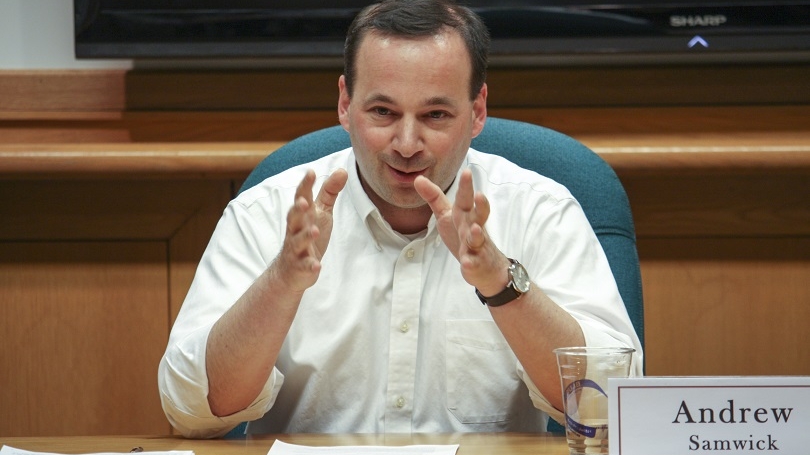
Menu
- Public Policy
- Leadership
- Funding
- News & Events
- About the Center
Back to Top Nav
Back to Top Nav
Back to Top Nav
Back to Top Nav
This week's session was led by Professor Andrew Samwick, who currently serves as both the Director of the Rockefeller Center and the Sandra and Arthur Irving Professor of Economics at Dartmouth College. Outside of Dartmouth, he currently serves as a Research Associate of the National Bureau of Economic Research, and in 2003 and 2004, he was the chief economist on the staff of the President’s Council of Economic Advisers. Professor Samwick graduated summa cum laude in economics from Harvard College and received his PhD from the Massachusetts Institute of Technology.
Perhaps unsurprisingly, Professor Samwick's session centered on an economics concept, the "natural resource curse." The term refers to the "paradox of plenty," in which countries with more natural resources do not necessarily experience greater economic growth. Professor Samwick applied the concept to leadership, prompting the Rockefeller Leadership Fellows to question the vast disparity of resources in the world and how countries operate in environments of scarcity - and then, most importantly, how one might avoid the natural resource curse when in a leadership role.
After discussing examples of the natural resource curse in international settings, Professor Samwick posed the question: what would you do if you came across a pile of resources? A consensus emerged among the Rockefeller Leadership Fellows, as several Fellows advocated for the reinvestment of resources into vehicles of future economic growth, such as public education. Professor Samwick moderated the discussion, as Fellows explored the implications of such a boon on individual accountability, productive capital, and governance.
Narrowing the focus to organizations, he asked Fellows to consider real-life examples of blessings acting as curses. The Dartmouth administration, the United States military, social media, and the American prison system emerged as examples. Through this discussion, Professor Samwick emphasized the importance of strong governance and strong institutions, as both structures would "raise the price of doing nefarious things" with resources, limit errant consumption of resources, and convert "plenty into productivity." These themes, he argued, are just as applicable to organizational and personal leadership situations. Professor Samwick ended the session by asking Fellows to apply the natural resource curse framework to their personal lives, with the central message that sometimes we need to invest in our weaknesses just as much as we do in our strengths.
-Submitted by Soyeun Yang '16, Rockefeller Leadership Fellow